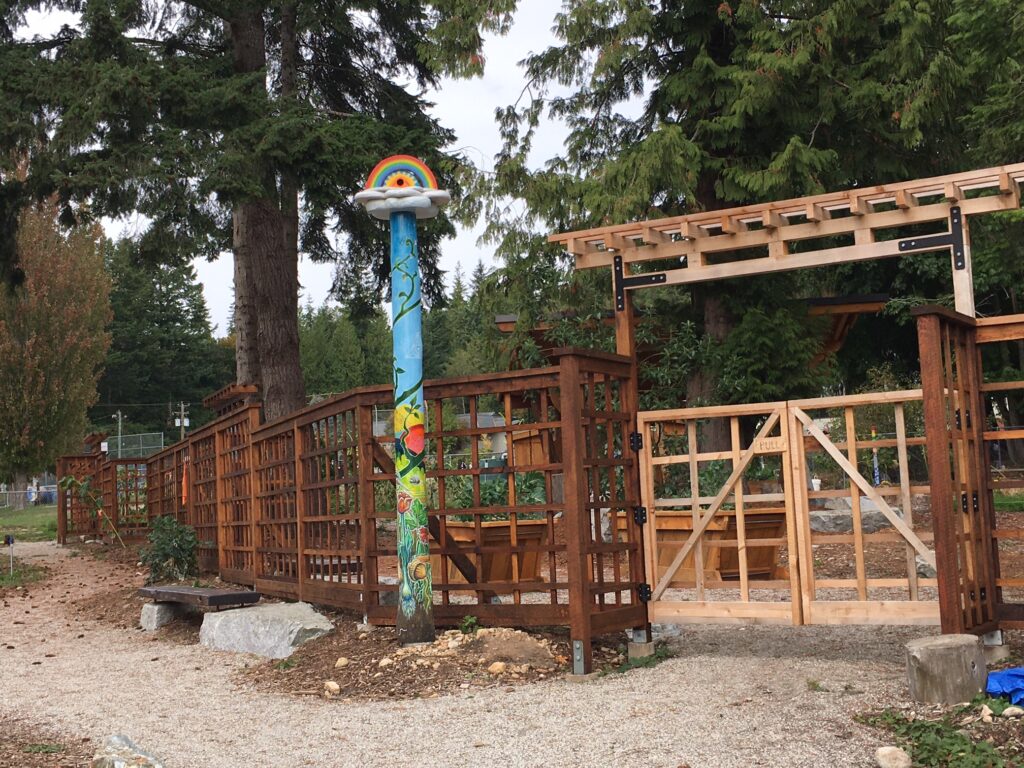
News
Local Food Infrastructure Fund to accept new applications in June
March 24, 2022 By Agriculture and Agri-Food Canada
 Roberts Creek Legacy Garden & Cedar Grove Elementary School Garden Project a project from a previous wave of LFIF funding. Photo provided by: AAFC
Roberts Creek Legacy Garden & Cedar Grove Elementary School Garden Project a project from a previous wave of LFIF funding. Photo provided by: AAFC
A new phase of the Local Food Infrastructure Fund (LFIF) has launched.
On Wednesday, the federal government announced an investment of up to $20 million for LFIF. This funding, available over the next two years, will support community-based and not-for-profit organizations in their efforts to create long-term solutions to address food security challenges.
According to the news release, this new phase of the Local Food Infrastructure Fund has been tailored to meet the needs of Indigenous, Northern and remote communities by providing funding to help them build a food system that will meet both current and future community needs. For example, a project could help expand a community harvest program to include traditional methods for transforming food and distribution.
Program details and requirements are available now, and applications for this intake phase can be submitted from June 1 until July 15, 2022.
The release of program details ahead of the intake process will provide potential applicants with additional time to review the program guide, create partnerships with neighbouring communities, ask questions and get feedback from program officials.
Eligible projects must be infrastructure-specific, community-driven and dedicated to improving access to healthy, nutritious, and local foods for Canadians at risk of food insecurity. Grant funding for projects can range from $100,000 to $500,000 to support larger initiatives that will have a lasting impact in communities.
For more information on the Local Food Infrastructure Fund, please contact the program by: E-mail: aafc.foodprograms-programmesalimentaires.aac@agr.gc.ca or call: 1-877-246-4682. Program information is also available through agriculture.canada.ca/local-food.
“Northern and Arctic communities face unique challenges such as isolation and socioeconomic factors that make them particularly vulnerable to food insecurity. These factors, along with routinely higher food prices than in the rest of the country, have reinforced the need for long-term, community and traditions-based solutions. That’s why our government is working with partners to strengthen local food solutions in Northern and remote communities, based on their priorities,” says Daniel Vandal, Minister of Northern Affairs, Minister responsible for Prairies Economic Development Canada and Minister responsible for the Canadian Northern Economic Development Agency
Since it first launched in August 2019, the LFIF has committed $35.7 million to support over 801 vital food security projects across Canada, such as: community gardens and kitchens; refrigerated trucks and storage units for donated food; greenhouses in remote and Northern communities; and more.
To date, LFIF has supported 120 projects led by Indigenous organizations for up to $5.7 million in approved funding.
Print this page